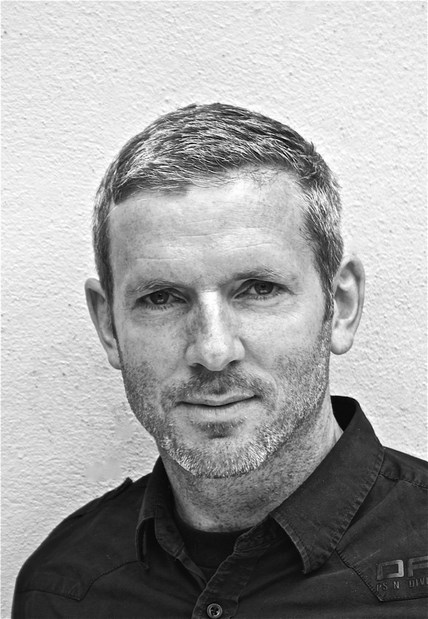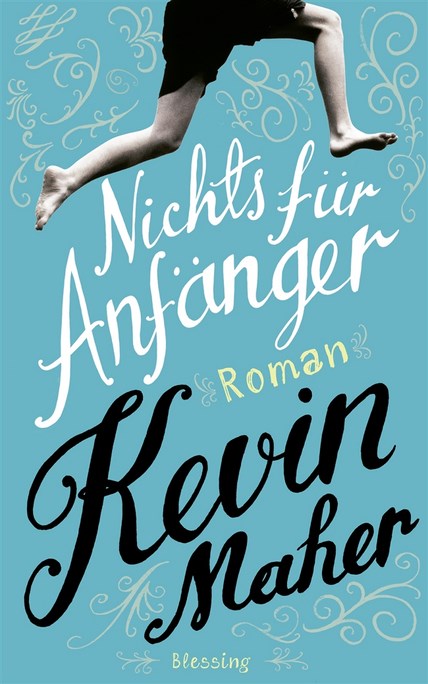The following is an Interview with writer and journalist Kevin Maher

YCBS spoke with him about his new book, translated and published by Karl Blessing editing house in Germany. The German version is titled “Nichts für Anfänger”. Kevin Maher sent us his answers in an e-mail.
Why the book is titled “The Fields are our waterstones”?
Strangely, the English title of the book is actually, just, ‘The Fields’. I think maybe there was some confusion in translation because ‘The Fields’ was chosen by the UK booksellers Waterstones as one of their favourite books of the year. So, anyway, the English title of the book is ‘The Fields’ for lots of different reasons. The first is because the main character, Jim Finnegan, sings the old Irish song ‘The Fields of Athenry’ during a key scene in the novel. Then, there is a painting of rural Irish fields in the room of the priest Fr O’Culigeen, where a terrible scene takes place. Later on, the boys in the novel go camping in a ‘field’ in the mountains over Dublin. And, finally, ‘the fields’ also refers to the Human Energy Field that the main character, Jim, learns about when he is in London
What is the book about?
It’s about lots of things, but mainly about a boy growing up in the mid-1980s in Dublin, and later in London, whose life is transformed by an encounter with two different people in his neighbourhood – one good, one bad. The good one is a local girl that he falls in love with, called Saidhbh (and pronounced ‘Sive’ – it’s an old Irish spelling). The bad one is a devious priest called Fr O’Culigeen. And these two encounters push the boy’s life off in different directions, eventually to London where he learns enough about life to save himself, and those around him.
Is it an Autobiography?
Yes, and no. Yes, because I’ve written about the areas in Dublin that I know about, and I have taken memories I have of that time in Dublin and used them to try and make the story seem credible. But no, because the characters are completely fictitious and the story even more so.
Is Jim Finnegans a rebel or is he disassociated with the traditional and religious beliefs of his parents?
I think Jim is forced to be a rebel against his will. He’s just someone who wants a normal life, to have friends and maybe even a girlfriend. But all this is made very difficult by the circumstances around him – which range from the ideas of the day (religious ideas about sex and sin and purity), to the very real actions of the people around him (the friend who beats him, and the priest who takes advantage of him).
You describe a district in Dublin, where the story plays, do the people who live there at present come from different cultures?
The district I describe in the book is Suburban South County Dublin, and it hasn’t changed much since I left it (in the early 1990s). Back then it was very white and very middle class, and today it’s pretty much the same. To find people of different cultures in Dublin you often have to move away from the suburbs and towards the centre of the city.
Are the communities, districts and schools in Dublin still divided between Catholic and Protestants?
No, thankfully the divide between Catholic and Protestant is not something that affects many people in Dublin these days. The political conflict in Ireland, which for most of the last 20th century was localised in the North of the country, has all but disappeared since the so-called Good Friday Agreement of 1998. If there is any division today within the districts and schools of Dublin it is between the rich and the poor. And in a very clear way.
How valuable will it be for a young reader in Germany?
I would like to say that the book will give them a brilliant insight into life in Ireland in the mid-1980s, but instead what I really hope is that all teenage life is universal, and instead a reader in Germany (and, to be honest, I don’t think this book is suitable for anyone under 15 years of age – some of the material is too dark and shocking) will find that he or she can empathise with the main character, and remember their own teenage years, and remember their own highs and lows, and maybe, at best, make peace with that. And, if not, maybe they can just have a bit of a laugh.

Moderated by Alexander Schmolke
Editor Mila Zaharieva-Schmolke
